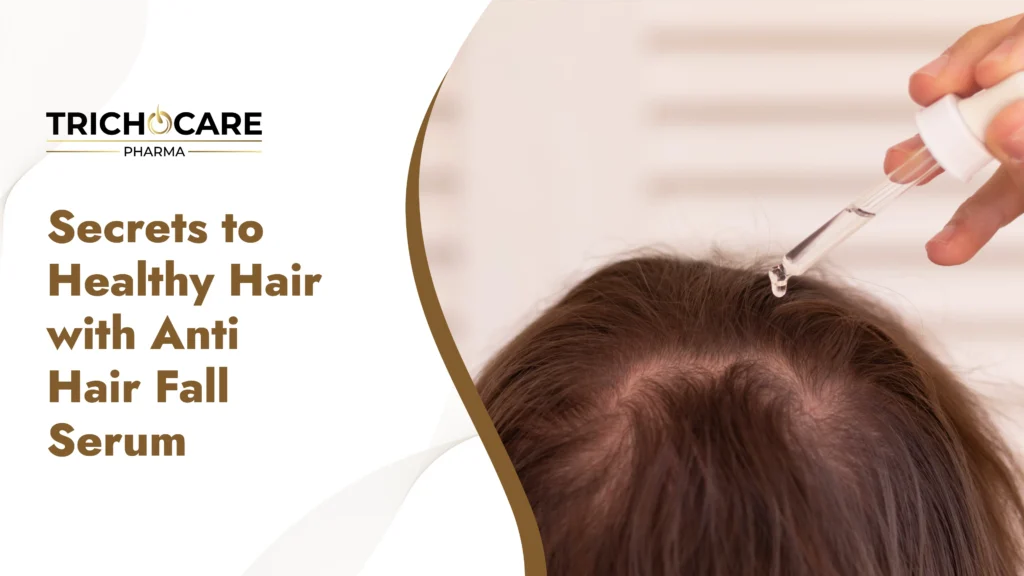Hair loss happens to be one of the most stressful conditions affecting the human population at whatever age. There are hundreds of hair loss tablets marketed in the market, and choosing the right one is definitely not an easy task. This guide will help understand the factors to consider before choosing the tablet that best suits your particular needs.
Understanding Different Types of Hair Loss
Before selecting any hair loss tablet, a person should know the reason for hair loss. Different causes call for different treatments; therefore, the correct diagnosis is an important step toward proper treatment. For instance, androgenetic alopecia, also called male or female pattern baldness, is a genetic condition and usually requires long-term management with specific ingredients like DHT blockers. It normally responds to treatments that concentrate on slowing down hair thinning and promoting growth in resistant areas, mainly around the top of the scalp.
In contrast, hair loss due to stress, hormonal imbalance, or nutritional deficiencies is a bit more challenging. It is usually termed telogen effluvium and tends to do better with supplements that would correct deficiencies and generally promote hair and scalp health. Iron, B vitamins, and adaptogens are also helpful in addressing these disturbances.
With variations, a visit to a doctor to identify the major cause of your hair loss is a must. He will then suggest the required tests and treatments that will suit you specifically so that the selected tablet for hair loss hits the right cause and, thus, offers you a chance to get improvement that you can actually see.
Key Ingredients to Look for in Hair Loss Tablets
When evaluating the tablets, some ingredients do show very promising results. Finasteride works on the production of DHT, blocking it and providing an excellent treatment for pattern baldness. Biotin, which is also called Vitamin B7, helps to enhance healthy hair growth and support existing hair. Saw palmetto extract gives a natural solution for maintaining DHT levels in the body. Zinc and iron and other minerals also play crucial roles in sustaining healthy cycles of hair growth.

Key Factors to Consider When Choosing a Hair Loss Tablet
You need to pick the right tablet for you according to your health, lifestyle, and the hair concern you are looking forward to solving. Now let’s take a look at what needs to be checked before making that final decision.

1. Identification of the root cause of hair loss
First will be to determine if it is due to genes, hormonal change, deficiencies in nutrition, or simply stress. The subsequent areas will explain the different causes of hair loss, and the type of supplement needed for each, because obviously the cause is not consistent for everyone.
2. Review Key Ingredients for Effectiveness
Hair loss pills only are as good as the ingredients. The most potent and best researched are:
| Biotin | Also called Vitamin B7, it is very essential for hair health because of its ability to induce keratin production. |
| Saw Palmetto | Saw palmetto is widely in use because of its property of blocking DHT-a hormone responsible for hair thinning. |
| Iron and Zinc | Lack of these minerals leads to hair loss, therefore, it is a basic supplement for those losing hair due to nutrient deficiency. |
| Collagen | Supplements rich in collagen improve the flexibility, strength, and condition of hair and scalp as well. |
| Herbal Extracts | Ashwagandha and ginseng are incorporated in this supplement that manage stress levels, which leads to most hair loss conditions. |
3. Check for Any Potential Allergens or Side Effects
reactions, side effects, etc. It will be quite important to read labels for some possible allergens such as soy, gluten, and artificial additives. It would also go over the possible side effects like digestive discomfort or even hormonal imbalances that arise from specific ingredients.
4. Consult a Healthcare Professional
Over-the-counter hair-losing tablets are widely available, but a visit to a healthcare professional is necessary, especially for people with pre-existing medical conditions or those already on medication. A doctor can advise on tests to determine whether there are specific deficiencies or hormonal imbalances that contribute to hair loss, thereby guiding users toward a product suited to their health profile.
5. Determine the Recommended Dosage and Duration
There are dosages of the various kinds of tablets to be used and the time duration they will take to be in effect. The length of time taken for such products to start showing effects will be considered here. The users are requested to be patient and constant as hair grows in cycles and requires some time for that.
6. Evaluate Product Reviews and Brand Reputation
Among tens of thousands of brands worldwide, reading the reputation of a company may tell you more about the quality and effectiveness of the products produced. Here, readers will find out how to review actual user reviews, certifications, and if the brand’s products go through third-party testing.
Making Your Decision

Choose a hair losing tablet like Trichorise tablet based on your type of hair loss, medical history, lifestyle factors, and budget. A holistic approach is always helpful in making the right decision. Start with a full medical consultation to ensure you are not suffering from some other underlying health problem. You can research various good brands and read the experiences of other customers, keeping your expectations realistic about results.
Monitoring and Changing Treatment

After selecting the tablet, create a routine to monitor progress. Monitor changes in hair density, thickness, and general scalp health. Regular check-ups with healthcare providers will help in the adjustment of treatment plans if needed. As what works for others might not work for you, some trial and error might be necessary.
Conclusion
Choosing the right tablet to stop hair loss is somewhat complicated. Pay special attention to safety, effectiveness, and how long a program might continue. Effective management of hair loss may require more than just appropriate medical intervention-including healthy lifestyle decisions-and an adequate time perspective. Take advice from doctors for customized guidance and try not to have high hopes when treating hair loss.
Frequently Asked Questions (FAQs)
- How long before I actually notice a change with the hair loss tablets?
The effectiveness of the tablets varies from person to person, although this depends more on the underlying cause and the contents of an active ingredient within a tablet. The typical user starts seeing some level of improvement over 3 to 6 months as far as strength and falling is concerned, but may take longer for regrowth.
- Are hair loss tablets safe for use with other medications?
Most of the tablets are of natural composition; before beginning their consumption alongside pharmaceutical medicines, a prescription might be required by the patients so it is wise to advise such patients to take or ask a health practitioner concerning the tablets, where this might occur if some medicines contained in such tablets interfered with prescriptions.
- Can I take hair loss tablets if I don’t have a deficiency?
Yes, but not really. Hair loss pills are effective only when there’s deficiency or a disease causes hair loss. There would hardly be much improvement from the tablet if one lacks a deficiency or an issue which has caused the hair loss condition.
- Which is/are the most widely known side effects associated with hair loss tablets?
Side effects vary depending on the ingredients of the tablet. Some may feel a slight discomfort in their stomach, headaches, or hormonal changes. Start with the dose recommended by the doctor, and seek medical attention if side effects persist.
- Do hair loss tablets treat all types of hair loss?
Not all hair loss types will have a response to tablets. For instance, androgenetic alopecia may have an excellent response to tablets which carry DHT blockers but formulas based on nutrients could serve the stress-related hair loss better. A visit to a healthcare provider will also let you know whether or not a tablet is viable for your hair loss type.







